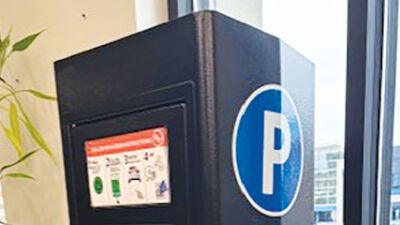ROYAL OAK — On May 9, the Royal Oak City Commission narrowly extinguished a resolution to add the sale and consumption of recreational marijuana at Arts, Beats & Eats, the city’s banner Labor Day festival, Sept. 2-5.
Despite the Police Department’s recommendation to deny the proposal, Commissioner Sharlan Douglas made a motion to approve the request, seconded by Mayor Pro Tem Melanie Macey and supported by Commission Brandon Kolo.
Mayor Michael Fournier and commissioners Kyle DuBuc, Patricia Paruch and Monica Hunt voted against the resolution, and it died without further action needed on the item.
Festival producer Jon Witz and festival sponsor House of Dank proposed operating an 18-by-100-foot enclosed tent for the sale of recreational marijuana and an open-air spot for consumption within the alley at South Center Street and Washington Avenue, between Sixth and Seventh streets.
The footprint, Witz said, would be obscured from view from the rest of the festival by fencing and have a total capacity of 362 people — 250 in the sales area and 112 in the consumption area. He added that House of Dank would provide its private security for managing the line, checking IDs, monitoring consumption and enforcing a 20-minute time limit.
The proposal also included 16 industrial fans for the consumption area, intended to quickly suck smoke up and dissipate it 100 feet into the air, according to Witz.
Mike DiLaura, chief corporate officer and general counsel for House of Dank, said the proposed menu included a “very curated” selection including a couple of pre-rolled cannabis joints, a small selection of THC electronic vape cigarettes, and one or two different flavors of edibles.
Royal Oak Police Chief Michael Moore said the department, after careful consideration, was opposed to the addition of the sale and consumption of recreational marijuana at the festival.
He said the state of Michigan has so far granted seven licenses for public consumption of marijuana, and he spoke to the law enforcement in each of the jurisdictions, who relayed that all events were not longer than two days, attracted not more than 2,000 people and took place in city parks.
Moore’s concerns were that Arts, Beats & Eats attracts up to 400,000 people, lasts four days, takes place in an urban setting and includes the sale of alcohol. None of the other events combined alcohol and marijuana. He added that the location of the proposed marijuana enterprise was adjacent to carnival and kids zones.
“Most if not all law enforcement officials expressed concern with what is before you tonight,” Moore said at the May 9 meeting. “Another concern is for police protection in the footprint. The strong odor and secondhand smoke makes detailing police officers inside the area difficult.”
Paruch said she was “very uncomfortable” with delegating law enforcement responsibilities to a private company and that her “gut feeling is that it’s just not right and there’s potentially going to be too many issues with it and it’s just not worth the risk.”
Hunt said she felt it was appropriate to follow Moore’s recommendation.
DuBuc said he fully supports Royal Oak being a cannabis-friendly city and is open to approving a cannabis-centric event, but was uncomfortable supporting the request because of the odor — mainly, not wanting to create a further issue for neighbors who consider the festival a nuisance — and the negative recommendation from police.
“I don’t believe there’s an increased risk of crime or any nonsense like that, but we’ve got a recommendation from our chief with legitimate concerns, mostly based on realistic logistical questions and things we don’t know about running a cannabis-centric event.”
“The idea of a cannabis-only event seems riskier to me, in my mind, than a well-established event where this is just a tiny piece of it,” Macey said. “We know the rest of this is going to go well. We’ve had experience with it many times. Maybe this is the way to test it out.”
Kolo said the city cannot stop attendees from bringing in and consuming marijuana at the festival, but it could at least put some parameters around the sale and consumption of it, which would increase safety and security.
“I think it’s time to destigmatize marijuana,” he said. “Quite frankly, it’s legal in the state by an overwhelming majority and an overwhelming majority voted for it in Royal Oak also.”
Douglas said she felt the biggest risk was the smell but that she is willing to give the request a chance for one year and “see how it works.”
Fournier said he was on the fence but ultimately voted against approval.
 Publication select ▼
Publication select ▼






















